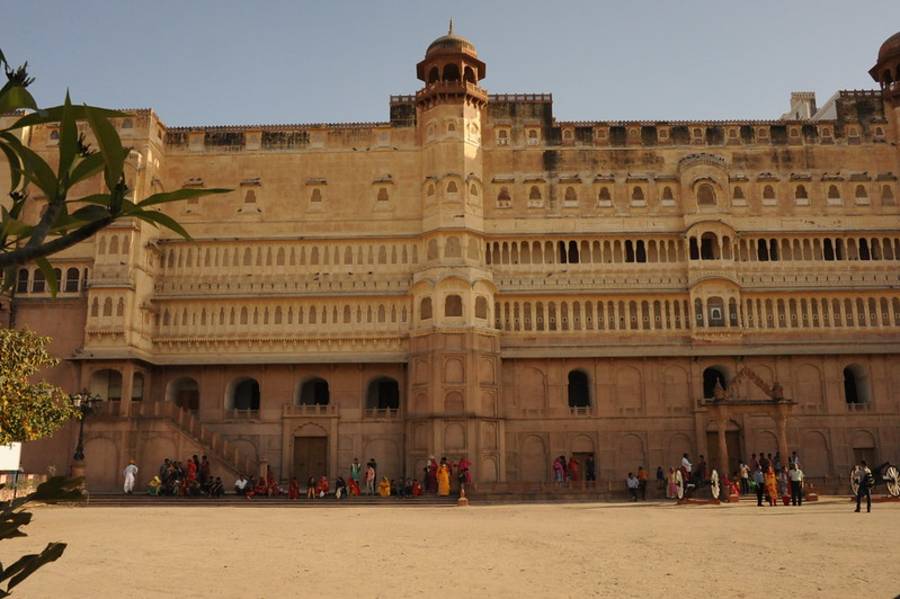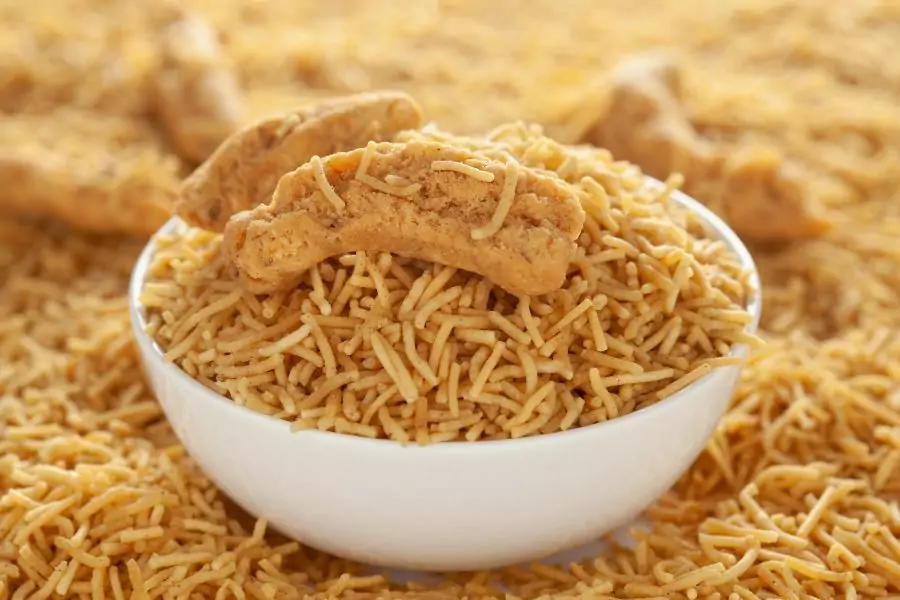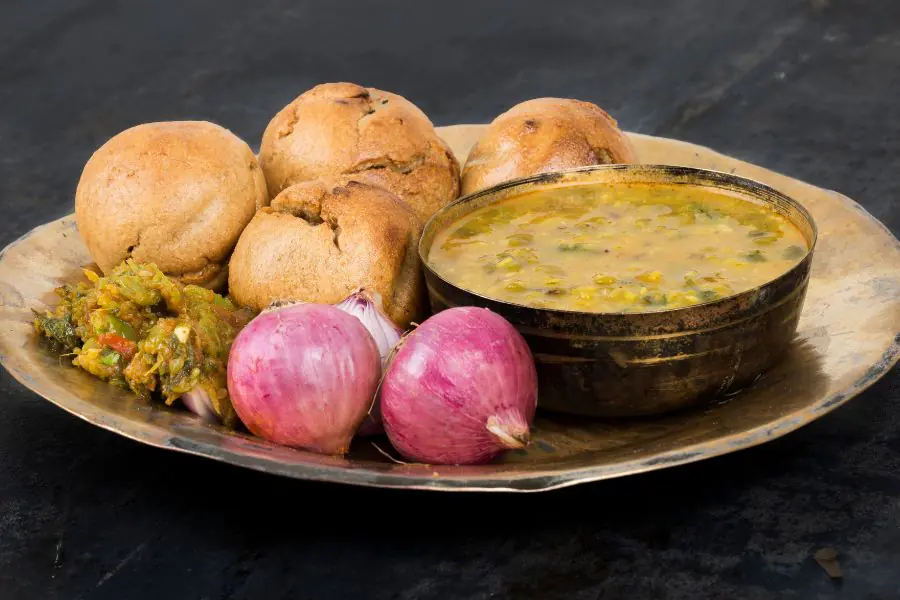Bikaner Travel – Top Attractions in Bikaner, Local Cuisine, Shopping

Welcome to Bikaner, a city that encapsulates the timeless beauty and grandeur of Rajasthan. Nestled in the northwest of India, Bikaner is renowned for its rich history, striking architecture, and vibrant culture. This comprehensive travel guide will delve into the city’s major attractions, local cuisine, shopping spots, and practical tips to help you make the most of your visit.
1. Introduction to Bikaner
Bikaner, founded in 1488 by Rao Bika, is a city with a legacy of valor and grandeur. It is strategically located along ancient trade routes, which contributed to its historical importance. The city’s heritage is deeply rooted in Rajput history, making it a fascinating destination for history enthusiasts and cultural explorers alike.
2. Top Attractions in Bikaner
Junagarh Fort

Junagarh Fort stands as a testament to Bikaner’s illustrious past. Built between 1588 and 1593 by Raja Rai Singh, the fort is renowned for its robust architecture and intricate interiors. Unlike many other forts in Rajasthan, Junagarh Fort was not built on a hill but on the plains, making it an architectural marvel.
- Ratan Vilas Palace: This section of the fort features elaborate carvings and spacious courtyards. The palace’s intricate design showcases the artistic flair of the Rajput era.
- Anup Mahal: Known for its opulent interiors, Anup Mahal boasts a blend of Mughal and Rajput architectural styles. The hall’s decorative elements include exquisite woodwork and frescoes.
- Karan Mahal: This palace is famous for its stunning mirror work and frescoes, which reflect the artistic achievements of the era. Visitors often marvel at the intricate designs and the palace’s historical significance.
Lalgarh Palace

Lalgarh Palace, constructed by Maharaja Ganga Singh in the late 19th century, is a splendid example of Rajput and Mughal architectural fusion. Today, the palace functions as a heritage hotel and museum, offering a glimpse into the opulent lifestyle of Rajasthan’s royalty.
- Museum Collection: The museum exhibits royal artifacts, including portraits, weapons, and ceremonial items, providing insights into the regal history of the region.
- Architectural Splendor: The palace features a blend of red sandstone, intricate arches, and ornate balconies. The architecture reflects the grandeur and sophistication of the time.
Karni Mata Temple

Located in Deshnok, about 30 kilometers from Bikaner, the Karni Mata Temple is famous for its unique inhabitants—rats. Dedicated to the goddess Karni Mata, the temple is a significant pilgrimage site for many Hindus.
- Sacred Rats: The temple is home to thousands of rats, which are considered sacred by devotees. Visitors often offer prayers and food to these rats, believing it will bring good fortune.
- Architectural Details: The temple’s architecture includes intricate marble carvings and beautiful frescoes, enhancing its spiritual ambiance.
Camel Breeding Farm

The Camel Breeding Farm, located on the outskirts of Bikaner, is one of Asia’s largest camel farms. It offers a unique opportunity to learn about camel husbandry and breeding practices.
- Breeding Programs: The farm is involved in research and breeding programs to improve camel breeds. Visitors can witness the process and learn about the importance of camels in desert agriculture.
- Camel Rides: The farm offers camel rides and a chance to purchase camel products such as milk and wool. It’s an excellent way to experience the traditional use of camels in Rajasthan.
3. Local Cuisine: A Flavorful Journey
Bikaner’s culinary landscape is a delightful exploration of Rajasthani flavors. The city is famous for its spicy and rich dishes, which are integral to its cultural heritage.
Bikaneri Bhujia

Bikaneri Bhujia is a celebrated snack made from gram flour and spices. Its crunchy texture and spicy flavor make it a favorite among locals and visitors alike. It’s often enjoyed as a tea-time snack or a travel treat.
Rajasthani Thali

A traditional Rajasthani Thali offers a comprehensive taste of local cuisine. It typically includes:
- Dal: A spiced lentil dish, cooked to perfection with a blend of spices.
- Bati: Baked bread, usually served with ghee and accompanied by dal.
- Churma: A sweet dessert made from wheat flour, ghee, and sugar.
- Various Curries: Including vegetable and meat options, reflecting the rich flavors of Rajasthani cooking.
Kachori
Kachori is a popular street food in Bikaner. These deep-fried pastries are filled with a spicy mixture of lentils, potatoes, and various spices. They are typically enjoyed with chutneys and curd.
4. Shopping in Bikaner
Shopping in Bikaner is a vibrant experience, with markets offering a range of traditional Rajasthani crafts and souvenirs.
Kote Gate

Kote Gate is a lively market area where you can find an assortment of items, including textiles, handicrafts, and traditional jewelry. The market is a great place to experience local life and pick up souvenirs.
Station Road
Station Road features a variety of shops selling Rajasthani fabrics, carpets, and artifacts. It’s an ideal location for purchasing traditional items and gifts.
5. Practical Travel Tips
Best Time to Visit
The ideal time to visit Bikaner is between October and March. During these months, the weather is pleasant and conducive to sightseeing. Summers (April to June) can be extremely hot, while the monsoon season (July to September) may bring heavy rains.
Getting Around
Bikaner offers several transportation options:
- Auto-Rickshaws: Convenient for short distances and local travel.
- Taxis: Available for longer journeys and sightseeing.
- Cycle-Rickshaws: A more leisurely way to explore the city’s streets.
Hiring a local guide can enhance your experience by providing valuable insights into the city’s history and culture.
Accommodation
Bikaner has a range of accommodation options to suit different budgets:
- Lalgarh Palace: A luxurious heritage hotel with elegant rooms and historical charm.
- Ratan Vilas: Known for its traditional architecture and comfortable stay.
- Hotel Bhanwar Niwas: A budget-friendly option offering a warm ambiance and basic amenities.
Safety and Etiquette
Bikaner is generally safe for tourists. However, it’s essential to follow basic safety precautions:
- Respect Local Customs: Dress modestly, especially when visiting religious sites.
- Stay Hydrated: Carry water and stay hydrated, particularly during the hotter months.
- Follow Guidelines: Adhere to local regulations and guidelines, especially in religious and heritage sites.
6. Conclusion
Bikaner is a city that offers a rich tapestry of history, culture, and cuisine. From its majestic forts and palaces to its vibrant markets and delicious food, Bikaner provides a truly immersive experience. Whether you’re exploring historical landmarks, indulging in local delicacies, or shopping for traditional crafts, Bikaner promises to leave a lasting impression.
FAQs
- What is the best time to visit Bikaner?
The best time to visit Bikaner is from October to March when the weather is pleasant for sightseeing. - How can I reach Bikaner?
The train, bus, or air are all ways to get to Bikaner. The nearest airport is in Jaipur, about 250 kilometers away. - What are some must-try dishes in Bikaner?
Don’t miss Bikaneri Bhujia, Rajasthani Thali, and Kachori for an authentic taste of local cuisine. - What unique attractions are near Bikaner?
The Karni Mata Temple, known for its resident rats, and the Camel Breeding Farm are unique attractions worth visiting. - Where can I shop in Bikaner?
Kote Gate and Station Road are popular shopping areas for Rajasthani textiles, handicrafts, and souvenirs.


